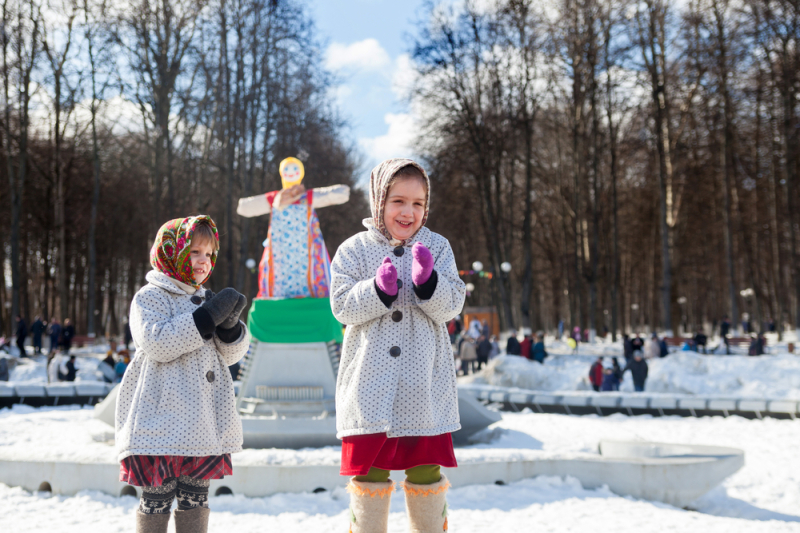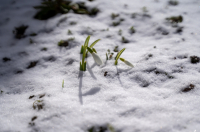In pagan times, Maslenitsa took place around the spring equinox, as this day was believed to mark the end of the cold half of the year. Even though nowadays Maslenitsa falls on the week before the Great Lent – an Orthodox Christian time of fasting – it’s still a holiday to greet the much-desired warmer season. In 2023, we celebrate it on February 20-26.
This week consists of two periods: Uzkaya (narrow) Maslenitsa, a preamble of sorts, which covers the first three days, and Shirokaya (wide) Maslenitsa, when the holiday is in full swing and all work is put on hold.
In earlier days, pancakes (blini) were baked starting day one. The first blin was meant for the ancestors – it was torn apart and put by the window (through which a soul can fly) while it was still steaming hot (a necessary part of the offerings).
On Tuesday and Wednesday, matchmaking took place. It was a good time for that because weddings weren’t typically held during lent, in May (a bad omen in many cultures; plus there are few food products left after the long winter), or in summer (when there’s too much work). Therefore, the best time for marriage was April, especially during the Krasnaya Gorka (Red Hill; a week after Orthodox Easter) holiday. So, young people and their families got a chance to meet each other a couple of months in advance during Maslenitsa.
On Thursday, the first day of Wide Maslenitsa, everyone was involved in fun activities. This included singing, jumping over bonfires, going on sleigh rides, playing or watching sports games, and, of course, feasting.
There was also an interesting way to say goodbye to winter: a game called Capture the Ice Town, during which a castle made of ice and snow was built and one team tried to protect it from seizure while the other attacked. Regardless of who played better, the ice town had to be destroyed at the end.
Friday and Saturday were more relaxing – the families of the married-to-be couples paid visits to one another.
Finally, on the last day of Maslenitsa, also called Forgiveness Sunday (Proshchenoye Voskresenie), everyone asked each other for forgiveness. That’s also when the culmination of the holiday took place – a straw effigy, also called Maslenitsa, was burned and its ashes were spread across fields, continuing the circle of life and sharing the power with soil on which new crops would grow.
We hope you enjoy Maslenitsa week – even if by simply tasting some blini!




